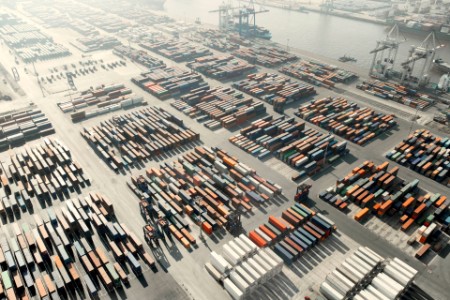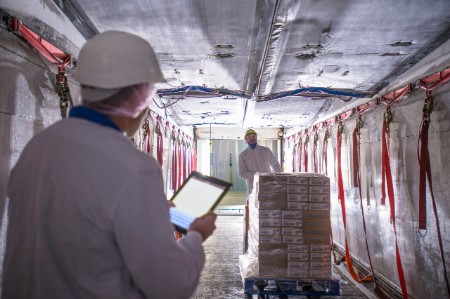
The better the question
How do you respond when certainty is in short supply?
The pandemic has had far-reaching effects on supply chains everywhere.
COVID-19 is causing significant impact to global trade and product flow. Moving physical goods is especially challenging. With people in lockdown, and many businesses not operating as normal, the logistics of transportation are becoming increasingly complex – causing real problems for customers.
EY was already working with one of the world’s largest advanced manufacturing companies to improve their supply chain when the pandemic hit. We immediately increased our focus and deployed advanced analytics, including process mining and satellite imaging, to anticipate customer demand while maintaining the flow of goods through key ports.

The better the answer
Using advanced analytics to avoid supply disruptions
We gave the client the tools they needed to make better-informed decisions.
First, we asked three vital questions:
- What if we need to explore alternate routes to market?
- Do current production flows make sense when some customers are shutting down while others are ramping up?
- How can data and analytics help us make real-time decisions that will keep supply chains functioning effectively?
Using satellite data to make better choices
Knowing what is happening on the ground is key. Satellite data tells us what is going on in ports around the world. This means we know where the biggest challenges are. Analytics are helping us make intelligent decisions and act fast to manage congestion and delays. This knowledge means we can anticipate issues and re-route material flows to minimize disruption.
This insight enables our client to make better decisions and keep vital goods flowing. But it also helps our client’s people. The stress and anxiety involved in making judgement calls in times of crisis is huge. Giving people access to real-time data helps them make more informed decisions and takes some of that pressure away.
Using historical production patterns to shape operational plans
As well as maintaining the supply of vital goods, we also wanted to enable our client to keep track of demand and run their operations effectively and efficiently. By analyzing current and historical sales orders as well as production patterns over the last 12 months, we’re giving our client the tools to determine whether to pause, reduce, or ramp up their production runs.

The better the world works
Building a data-driven approach to supply resilience
Armed with new knowledge, our client is getting essential goods to the people who need them most.
It’s efforts like this that are helping to ensure that the world’s supply chains stay resilient amid the COVID-19 pandemic.
Our work has already delivered some immediate benefits:
- We moved rapidly to keep the supply chain working and materials flowing.
- We also identified an escalating backlog issue caused by logistics delays and developed mitigation strategies.
- We empowered our client’s workforce to make informed decisions that would ensure they help maintain their reputation as a trusted supplier.
And the analytics we’re deploying, alongside the data-driven approach we’ve designed, is giving our advanced manufacturing client a unique ability to manage their risks, ensure minimum disruption to supply chains, and to continue to run their business efficiently and effectively.
Ultimately all of our efforts are designed to do one thing: keep the world’s supply chains moving so essential goods get to the people who need them most.
The team
Contact us
Like what you've seen? Get in touch to learn more.


